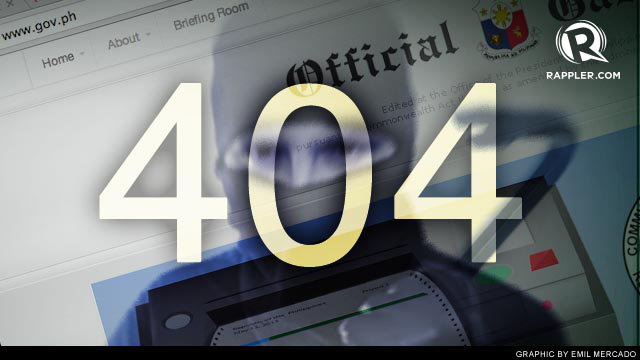SUMMARY
This is AI generated summarization, which may have errors. For context, always refer to the full article.

MANILA, Philippines – The group behind the crowdsourced Magna Carta for Philippine Internet Freedom, which is being pushed by Sen Miriam Defensor Santiago, said that the recent distributed denial of service (DDoS) attacks on government websites showed the “vulnerability” of the country’s Internet security.
Democracy.Net.Ph urged the government to take steps to improve cyber-security before attacks “endanger lives and property,” the group said in a statement Saturday, May 11.
“We at Democracy.Net.Ph reiterate our concern at the state of Philippine cybersecurity, especially the defense of our national cyber-resources. Today’s cyber-attack, as well as similar past incidents, highlights the vulnerability of our cyber-infrastructure.”
“Unfortunately, except for the fleeting references to the Cybercrime Prevention Act, information and communications technology (ICT) issues have largely been ignored in this election cycle,”
“We, as a nation, must engage in a serious discussion of a rational, comprehensive, and constitutional approach toward the development and defense of our national cyber-resources before cyberattacks endanger lives and property. An indispensable first step is to elect leaders who are cognizant of ICT issues and who will genuinely work toward protecting and promoting our rights and security in cyberspace.”
At 4:10 pm on Saturday, May 11, the Department of Science and Technology (DOST) acknowledged the DDoS attacks that rendered government websites inaccessible.
The websites of the following agencies were targeted:
- Department of Science and Technology (DOST)
- Commission on Elections (Comelec)
- Philippine News Agency (PNA)
- Department of Interior and Local Government (DILG)
- Department of National Defense (DND)
- Department of Foreign Affairs (DFA)
- Philippine National Police (PNP)
- Philippine Army
- Philippine Navy
- Philippine Information Agency
The attacks occurred 2 days before the country’s midterm elections, thereby denying voters access to information about the polls. According to a GMA report, the attacks linked to a Taiwanese webpage.
Santiago, who filed the bill on November 2012, described the Magna Carta for Philippine Internet Freedom as “anti-cybercrime law version 2.0.”
The bill does not include controversial provisions in the anti-cybercrime law such as the collection of real-time traffic data and the “takedown clause,” which would allow the government to block access to a website or network without a court order. – Rappler.com
Add a comment
How does this make you feel?
There are no comments yet. Add your comment to start the conversation.